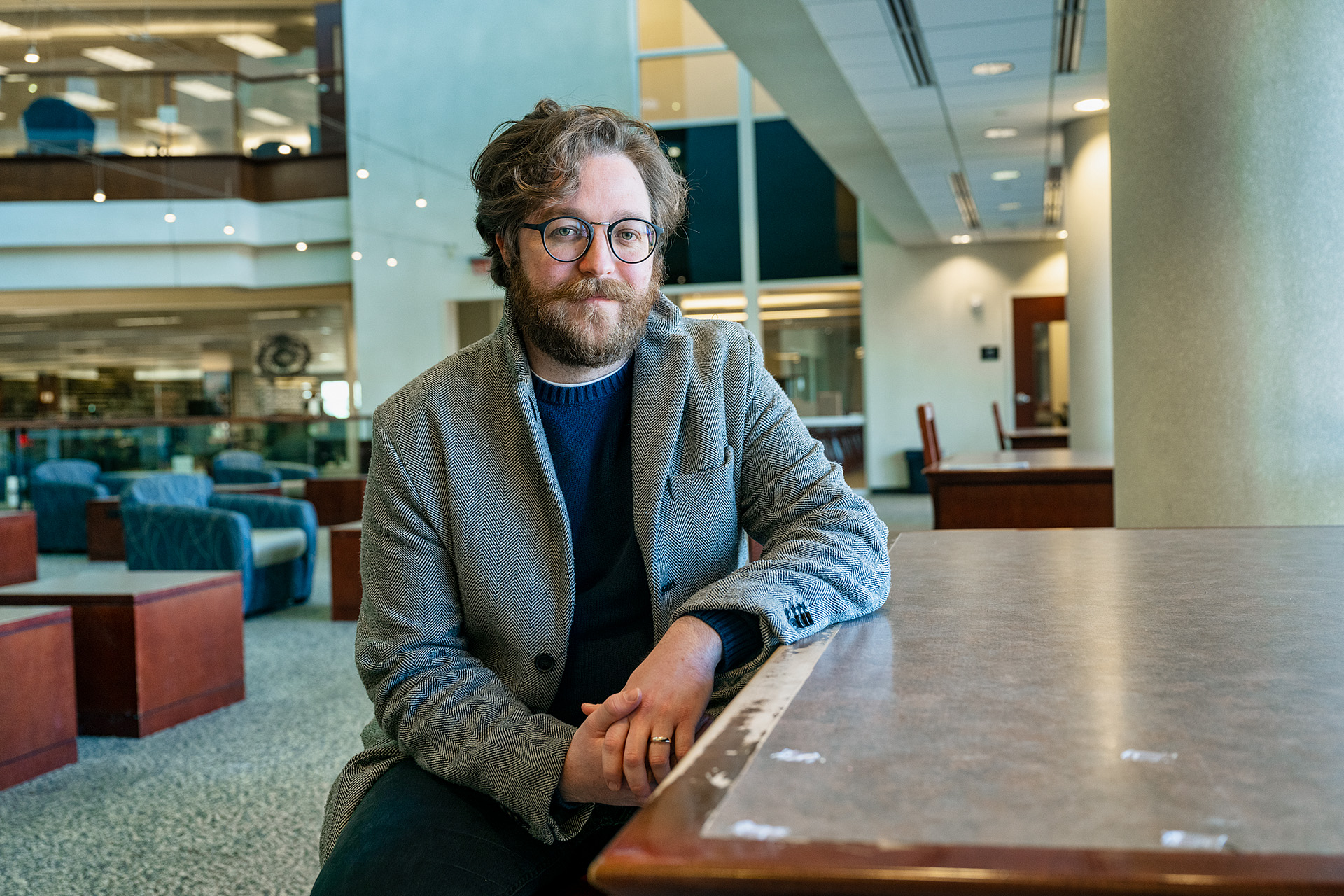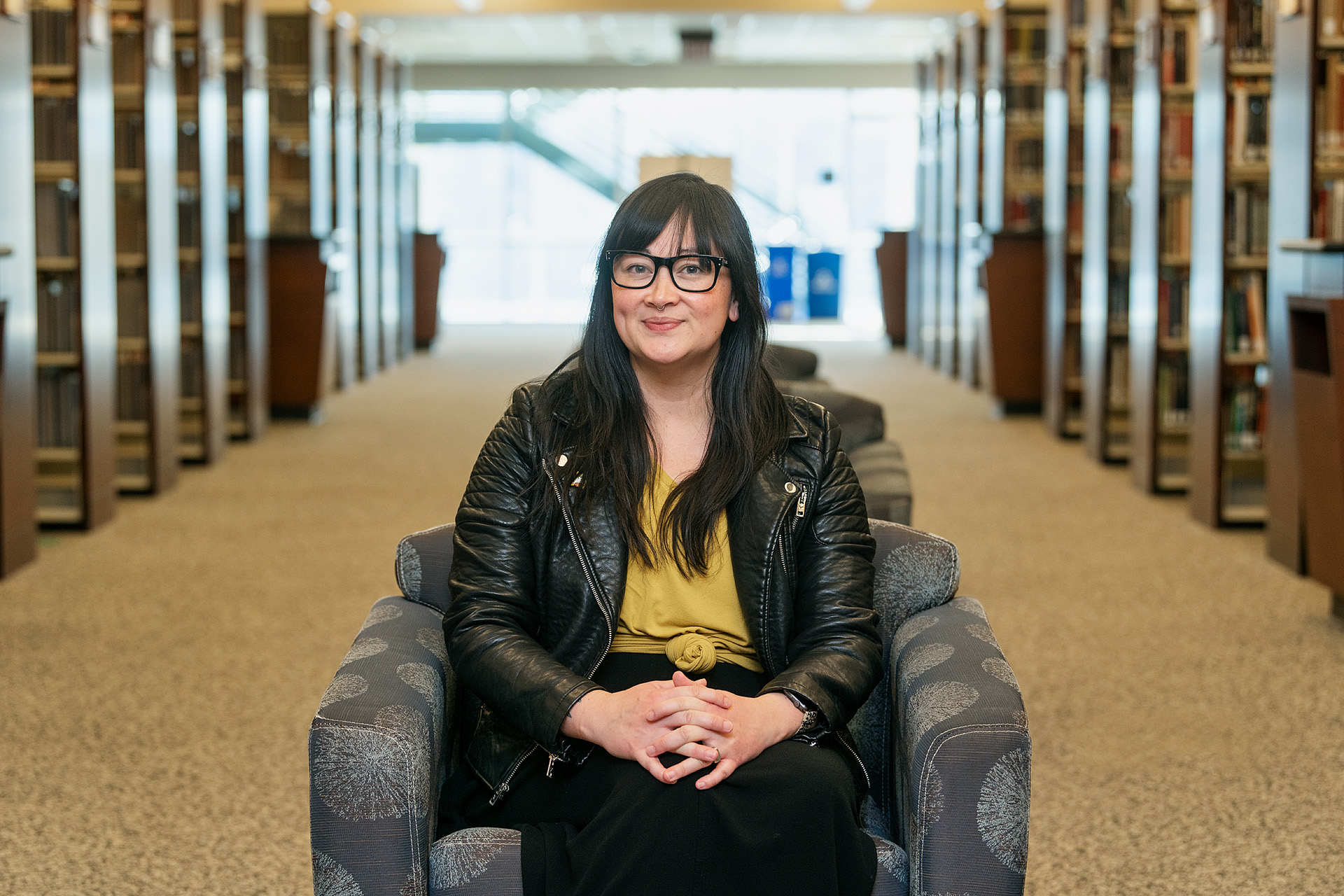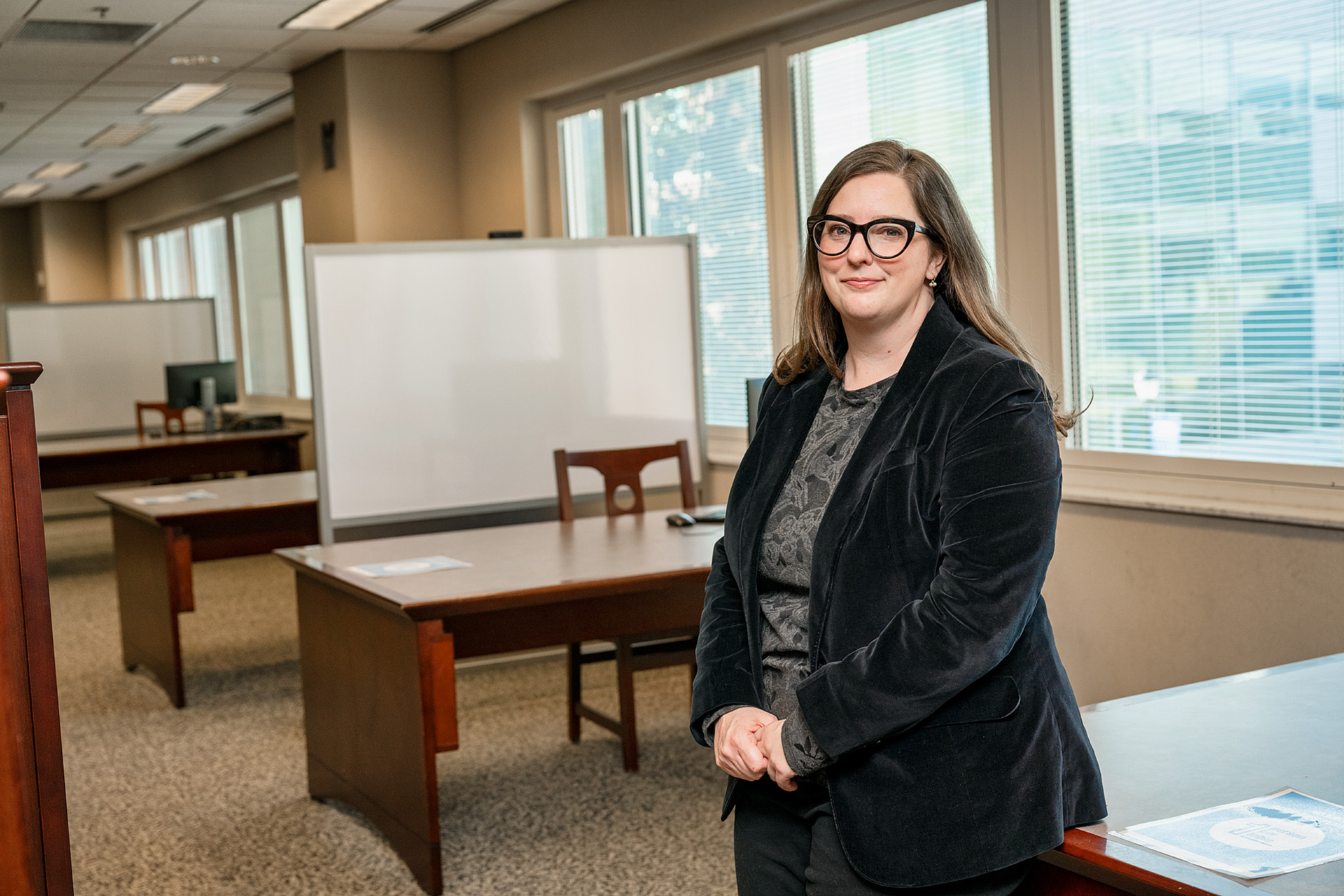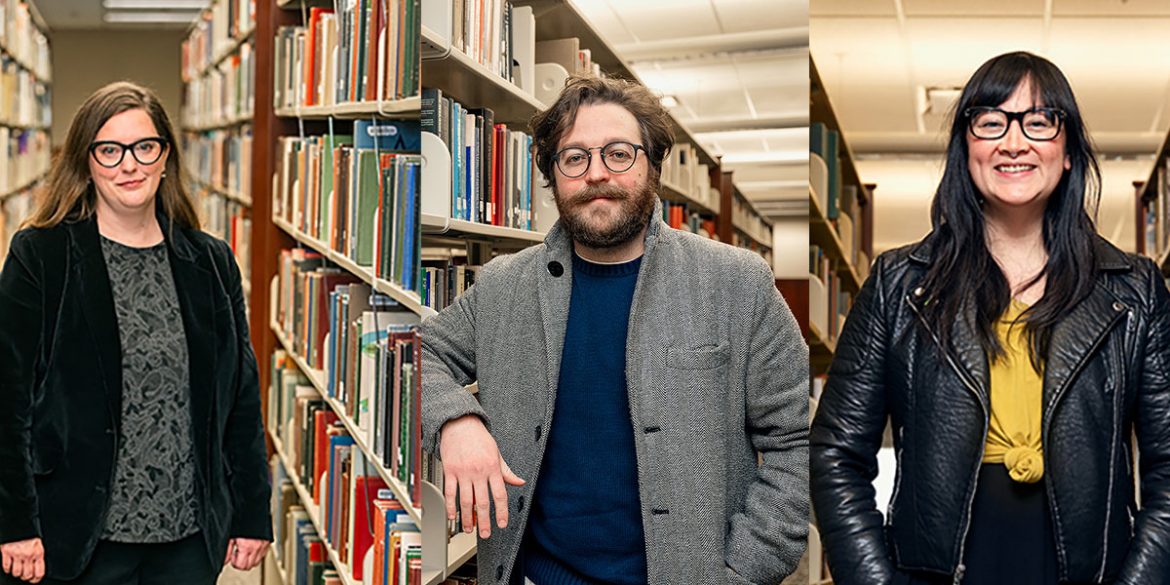Among the many people helping to maintain the James E. Walker Library’s status as a full-service resource for students and faculty are three staffers who work mostly behind the scenes.
Systems Librarian Robert Wilson and Discovery Services Librarian Denise Quintel said their mission is not buying or purchasing materials but making sure users have access to materials. The ways in which users access materials changed dramatically with the onset of the COVID-19 pandemic.
“Especially in the early days, the first few months, there was a really high focus on communicating to everyone in the library and ensuring that everyone felt safe doing their jobs,” Wilson said.

Robert Wilson, Systems Librarian, James E. Walker Library. (Photo: Andy Heidt)
The alterations included learning new tools for collaborating remotely and figuring out the best ways to manage projects.
“We’re still doing our same jobs,” Quintel said. “It’s just so much more of it.”
Quintel, who handles the Walker Library website and its search engine, was required in the early days of the pandemic to make weekly reports full of metrics to the library’s administrative council. She still files those reports monthly, but, in addition, the website itself had to be revised.
“We had to create a remote services page, and we had (to find) resources that were free from publishers and vendors,” Quintel said.

Denise Quintel, Discovery Services Librarian, James E. Walker Library. (Photo: Andy Heidt)
As acquisitions librarian, Suzanne Mangrum’s job is to purchase books and handle the library textbook program. This past fall, Mangrum earned an open educational resources certification that enhanced her understanding of virtual materials.
“I’ve been trying really hard to move every book I can find (to) an e-book instead of a print book,” Mangrum said.
The textbook program, which began with the fall 2019 semester, provides students access to texts and other reading materials for general education classes. Students can check out materials for three hours at a time, but they must use those materials in the library.
The program is designed to help students who can’t afford to purchase their own textbooks and to aid in retention since lack of funding is one reason some students drop out. Subjects include astronomy, biology, chemistry, communication studies, economics, English, geology, history, mathematics, psychology and theater.
Copyright restrictions also can pose an impediment to access. Mangrum said she spent a lot of time in March and April contacting authors personally and asking them for permission to make their works available.

Suzanne Mangrum, Acquisitions Librarian, James E. Walker Library. (Photo: Andy Heidt)
“I found that authors have been very generous in allowing us to scan their work for students,” Mangrum said.
Such personal contact with authors is unnecessary with open-source textbooks, which are licensed under an open copyright license. It can be used by students, teachers and the public at little or no cost.
“We have been trying to move so that we’re not just doing a textbook program but that we’re also offering services to faculty to do open-source textbooks to save students money,” Mangrum said.
Books aren’t Mangrum’s only concern. She also handles music and documentaries. She said she spends a good amount of time tracking down documentaries for professors, and those films have to be available online because of the pandemic.
“I think streaming media was becoming a bigger and bigger thing … during the pandemic, and I expect it’s not going to go down after the pandemic,” Mangrum said.” I think faculty love to use it in their classrooms.”
Mangrum, Wilson and Quintel all praise library administrators who relaxed occupational constraints and gave them the leeway they needed to both keep their lives on track and get their jobs done.
“We have been pushing our library systems in a way that was never expected, but they’re still working,” Wilson said. “It’s been kind of amazing how quickly everyone’s been able to adjust and how flexible how many of the staff are.”
— Gina K. Logue (gina.logue@mtsu.edu)


COMMENTS ARE OFF THIS POST